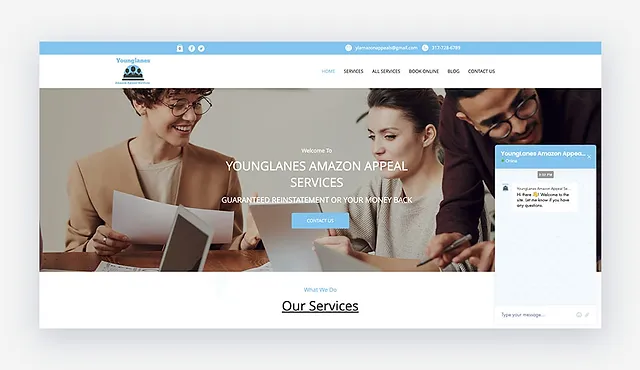In the digital age, a well-designed website is a crucial element for the success of any business, especially for consulting firms. A website serves as the virtual storefront, offering visitors a glimpse into the services, expertise, and professionalism that a consulting business offers. In this article, we will delve into the essential aspects of creating the best website design for a consulting business.
Table of Contents
- Introduction: The Significance of Website Design for Consulting Businesses
- Understanding Your Target Audience
- User-Friendly Navigation: Simplifying Complex Services
- Visual Appeal: Professionalism and Trust
- Crafting Compelling Content: Showcasing Expertise
- Incorporating Strong Calls-to-Action (CTAs)
- Mobile Responsiveness: Reaching Clients on the Go
- Speed and Performance Optimization
- Establishing Credibility through Testimonials
- Blogging for Authority and SEO
- Integrating Contact Forms and Live Chat
- Implementing Effective Lead Generation Strategies
- Utilizing Analytics to Refine Your Website
- Security Measures: Building Trust and Protecting Data
- Conclusion
Introduction: The Significance of Website Design for Consulting Businesses
In today’s competitive business landscape, a consulting firm’s website is often the first point of contact for potential clients. A well-crafted website design can convey professionalism, expertise, and the unique value proposition of the consulting business. The right design can effectively communicate the brand’s essence and establish a strong online presence.
Understanding Your Target Audience
Before diving into the design process, it’s essential to understand the target audience. Different consulting services cater to different industries and clients. Knowing the demographics, preferences, and pain points of your audience enables you to tailor the design and content to resonate with them.
User-Friendly Navigation: Simplifying Complex Services
Consulting services can be intricate and multifaceted. The website’s navigation should simplify the process of exploring various services and solutions. Clear menu structures, intuitive icons, and well-organized content help visitors quickly find what they’re looking for.
Visual Appeal: Professionalism and Trust
The visual elements of your website should reflect the professionalism of your consulting business. Clean layouts, a harmonious color palette, and high-quality images convey trustworthiness and competence. A clutter-free design enhances user experience.
Crafting Compelling Content: Showcasing Expertise
Content is king in the digital realm. Engaging and informative content that addresses common challenges and provides actionable insights positions your consulting firm as an industry leader. Regularly updated content through blog posts or articles demonstrates ongoing expertise.
Incorporating Strong Calls-to-Action (CTAs)
Strategically placed calls-to-action guide visitors towards taking desired actions, such as requesting a consultation or downloading a resource. CTAs should be attention-grabbing, action-oriented, and well-integrated into the overall design.
Mobile Responsiveness: Reaching Clients on the Go
With the majority of users accessing websites via mobile devices, mobile responsiveness is paramount. A responsive design ensures that your website looks and functions seamlessly across various screen sizes and devices.
Speed and Performance Optimization
Slow-loading websites deter visitors and negatively impact search engine rankings. Optimizing your website’s speed and performance ensures a seamless user experience and boosts SEO efforts.
Establishing Credibility through Testimonials
Client testimonials and success stories add credibility to your consulting business. Incorporating these on your website provides social proof of the value you bring to clients.
Blogging for Authority and SEO
Maintaining a blog allows you to share valuable insights, industry trends, and thought leadership. This not only establishes authority in your niche but also enhances your website’s search engine visibility.
Integrating Contact Forms and Live Chat
Making it easy for visitors to reach out is crucial. Contact forms and live chat features offer convenient ways for potential clients to initiate communication, leading to potential leads and conversions.
Implementing Effective Lead Generation Strategies
Strategically placing lead generation forms, offering downloadable resources, or providing free consultations can capture visitor information for further engagement and nurturing.
Utilizing Analytics to Refine Your Website
Analytics tools offer insights into visitor behavior, page popularity, and conversion rates. These insights help refine the website design and content for optimal results.
Security Measures: Building Trust and Protecting Data
Security is paramount, especially when dealing with sensitive client information. Implementing SSL certificates and robust security measures instills trust in visitors and protects their data.
Conclusion
In the realm of consulting businesses, a well-designed website is more than a digital presence; it’s a powerful tool for attracting, engaging, and converting clients. By understanding your audience, creating user-friendly navigation, offering valuable content, and utilizing various design and optimization strategies, your consulting business can establish a strong online foothold that translates to real-world success.




